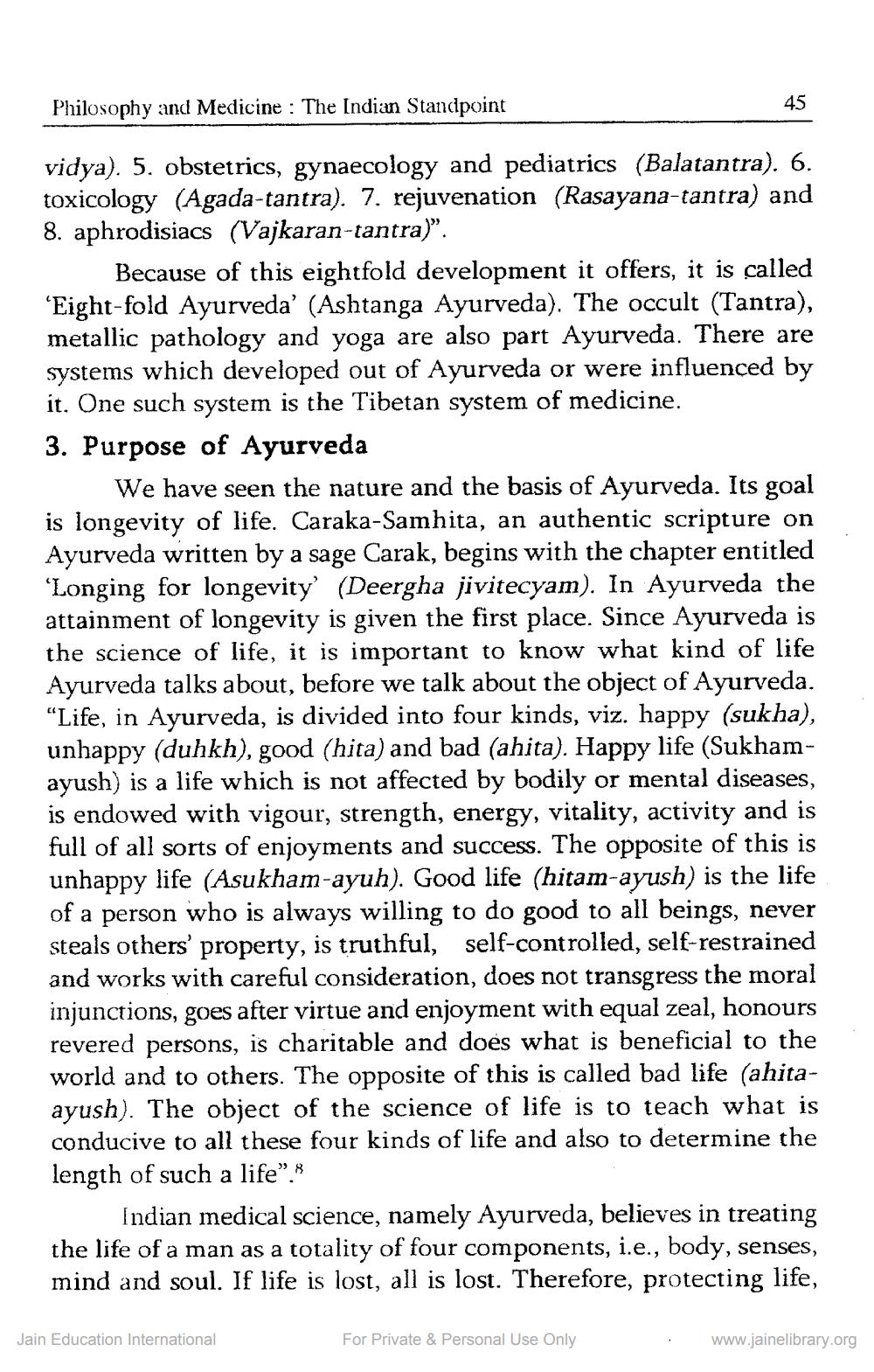________________
Philosophy and Medicine : The Indian Standpoint
45
vidya). 5. obstetrics, gynaecology and pediatrics (Balatantra). 6. toxicology (Agada-tantra). 7. rejuvenation (Rasayana-tantra) and 8. aphrodisiacs (Vajkaran-tantra)".
Because of this eightfold development it offers, it is called ‘Eight-fold Ayurveda' (Ashtanga Ayurveda). The occult (Tantra), metallic pathology and yoga are also part Ayurveda. There are systems which developed out of Ayurveda or were influenced by it. One such system is the Tibetan system of medicine. 3. Purpose of Ayurveda
We have seen the nature and the basis of Ayurveda. Its goal is longevity of life. Caraka-Samhita, an authentic scripture on Ayurveda written by a sage Carak, begins with the chapter entitled ‘Longing for longevity' (Deergha jivitecyam). In Ayurveda the attainment of longevity is given the first place. Since Ayurveda is the science of life, it is important to know what kind of life Ayurveda talks about, before we talk about the object of Ayurveda. “Life, in Ayurveda, is divided into four kinds, viz. happy (sukha), unhappy (duhkh), good (hita) and bad (ahita). Happy life (Sukhamayush) is a life which is not affected by bodily or mental diseases, is endowed with vigour, strength, energy, vitality, activity and is full of all sorts of enjoyments and success. The opposite of this is unhappy life (Asukham-ayuh). Good life (hitam-ayush) is the life of a person who is always willing to do good to all beings, never steals others' property, is truthful, self-controlled, self-restrained and works with careful consideration, does not transgress the moral injunctions, goes after virtue and enjoyment with equal zeal, honours revered persons, is charitable and does what is beneficial to the world and to others. The opposite of this is called bad life (ahitaayush). The object of the science of life is to teach what is conducive to all these four kinds of life and also to determine the length of such a life”.
Indian medical science, namely Ayurveda, believes in treating the life of a man as a totality of four components, i.e., body, senses, mind and soul. If life is lost, all is lost. Therefore, protecting life,
Jain Education International
For Private & Personal Use Only
www.jainelibrary.org




